![PJCQ4317[1]](https://i0.wp.com/thelakescoach.com/wp-content/uploads/2020/04/PJCQ43171.jpg?resize=1200%2C1200&ssl=1)
Posted by TheLakesCoach
Hydration is much more than just drinking water alone!
Optimising Hydration
Often misunderstood, hydration is much more than just drinking plenty of water. It’s a combination of consuming adequate electrolytes, or minerals from the daily diet whilst supplying the body with a steady supply of water to replenish fluids lost through body functioning, digestions, urination and sweating.
We need to ensure we consume a varied, healthy daily diet, including a wide range of animal products, fish, dairy, nuts, seeds, healthy fats (butter, cheese, olive oil, other dairy produce, animal fats, dark chocolate, nuts, seeds, eggs, oily fish etc), range of vegetables (especially dark leafy greens), some fruits, legumes and wholegrains, alongside consuming adequate water intake to maintain your hydration status.
Consuming PLAIN WATER alone is NOT the best way to HYDRATE! Our body needs ELECTROLYTES for OPTIMAL hydration. Only focussing on consuming plain water without electrolyte replenishment often leads to overhydrating.
Overhydrating with plain water can;
- Dehydrate you
- Flush out electrolytes
- Cause you to pee all day constantly
- Lead to low sodium levels
- Kill you (endurance athletes)
Instead, the solution is to place greater emphasis on including foods into the daily diet which are rich sources of all the hydration electrolytes to ensure the maintenance of proper hydration.
There are four primary electrolytes, these are calcium, potassium, magnesium and sodium. Calcium and magnesium play key roles in muscular contraction whilst potassium and sodium retain fluids within cells and outside of cells of the body. The human body requires a balance of all four.
HYDRATION electrolytes include:
- Sodium
- Potassium
- Magnesium
- Calcium
- Chloride
Sodium= Extracellular hydration
Potassium/Magnesium = INTRACELLULAR hydration
The human body is over 60% WATER. A third of that is SALT WATER. We cry, sweat and pee SALT WATER every day!
Were essentially WALKING OCEANS. Therefore, we need to make sure we’re obtaining adequate sodium into the diet to maintain extracellular hydration (retaining water in the body).
(Just for clarification, sodium and salt are not exactly the same thing. Salt contains sodium, roughly 1g salt contains 390mg sodium)
Exercise and/or low sodium intake (from the foods and drinks you consume) (particularly for those avoiding salt or exercising heavily regularly) can increase the loss of electrolytes (sodium, potassium, calcium, magnesium) through sweating or increased frequency of urination, depleting circulating levels of these essential minerals.
Failure to replenish lost fluids and electrolytes can lead to dehydration, cramps, reduced performance during exercise or accelerated fatigue.
Symptoms of dehydration
- Headache
- Fatigue
- Dizziness
- Weakness
- feeling thirsty.
- dark yellow, strong-smelling pee.
- peeing less often than usual.
- feeling dizzy or lightheaded.
- feeling tired.
- a dry mouth, lips and tongue.
- sunken eyes.
It’s recommended that we consume roughly 1.5g salt (585mg sodium) per litre of bodily fluids lost, to help retain bodily fluids. Higher rates of fluid loss means more electrolytes will leave the body, causing an imbalance.
Mineral Loss In Sweat
Minerals lost in sweat (1hr exercise)
Sodium- 1200mg
Chloride- 1725mg
Potassium- 140mg
Calcium- 40mg
Magnesium- 8-10mg
Iron- 0.16-0.63mg
Copper- 0.4mg
Zinc- 0.4mg
Iodine- 52mcg
Selenium- 40mcg
Chromium- 7.5mcg
Prior to or after exercise drink electrolyte water. 1000mg of sodium with 24oz of water (and lemon).
Replaces roughly 45mins of exercise or heat stress..
Drink electrolyte water (water, lemon and salt) in the morning. Replace the salt & Fluids you lost overnight
Electrolyte water= True hydration, alert and energised, say goodbye to headaches
Magnesium
Magnesium is an extremely important mineral.
It’s involved in hundreds of chemical reactions in your body and helps you maintain good health, but many people don’t reach the Daily Value (DV/RDI) of 420 milligrams (mg).
Magnesium plays an essential role in maintaining intracellular hydration alongside potassium. Its thought that cramp is primarily a result of low magnesium levels.
Magnesium reference daily intake (RDI) / recommended daily intake= 420mg per day
Magnesium lost during 1hr exercise= 8-10mg
Foods high in magnesium
- Dark chocolate= 64mg per 1oz (30g) or 16% RDI
- Avocado= 58mg per medium avocado or 15% RDI
- Almonds: 1oz (30g) provides 80mg
- Cashews: Cashews provide 82mg per 1oz (30g) or 20%RDI
- Cooked black beans= 120mg per 1 cup serving or 30% RDI
- Tofu= 100g provides 53mg or 13% RDI
- Pumpkin: 150mg per 1oz or 37% RDI
- Buckwheat= 65mg per 1oz or 16% RDI
- Oats: 1 cup (58g) provides 40mg or 12%RDI
- Salmon= 170g fillet provides 53mg or 13%
- Hlalibut:
- Mackerel: Provides 63.4mg or 19%DV per 198g fillet
- Bananas= 1 large banana provides 37mg or 9% RDI
Spinach- 1 cup cooked spinach= 157mg or 39% RDI (87mg per 100g fresh spinach)
- Hemp seeds= 1oz serving provides 197mg or 47% RDI
- Fresh tuna= 100g provides 64mg or 15% RDI
- Brazil nuts= 1oz (28g) provides 105mg or 25% RDI
- Kale, spinach, collard greens, mustard greens, turnip greens and swiss chard all rich.
Supplementation of magnesium
Could buy magnesium citrate (follow advice on bottle)
Calcium
Calcium is an important electrolyte which play a key role in muscle contraction.
Calcium is much more easily digested and absorbed by the body from dairy produce v.s. plant based sources of calcium
Recommended daily intake of Calcium= 1300mg
Calcium loss per 1hr exercise= ~40mg
Foods High in Calcium
- Dairy produce
- Milk= one cup (237ml) provides 325mg
- cheese= Parmesan contains 242mg per oz. Brie contains 42mg per oz.
- butter=
- yogurt= Plain yogurt 245g contains 230mg / 245g low fat yogurt provides 340mg
- Goat milk contains roughly 327mg per cup (237ml)
- Green leafy vegetables (broccoli, kale, cabbage, collard greens)
- Collard Greens= 190g cooked contains 268mg
- Oily Fish
- Sardines= 92g can provides 270mg
- Canned salmon= 85g canned salmon with bones provides 190mg
- Seeds
- Poppy= 127mg per tablespoon (9g)
- Sesame= 115mg per tablespoon (9g)
- chia seeds
- Almonds= 1 oz (28g) provides roughly 90mg
- Amaranth= 1 cup cooked amaranth contains 116mg
- Whey Protein= 1 scoop (33g) provides 160mg
- Some beans and lentils
- Winged beans= 1 cooked cup provides 244mg
- White beans= 1 cooked cup provides 170mg
Potassium
Potassium is an essential mineral and electrolyte that your body needs to maintain normal blood pressure, transport nutrients into your cells, and support healthy nerve and muscle function. It plays a key role in maintaining intercellular hydration, i.e. the hydration within cells of the body.
It’s considered an essential nutrient because your body can’t produce it. Therefore, you must get potassium from foods to meet your recommended daily needs, also known as the Daily Value (DV).
Recommended daily intake of Potassium= 2300-2600mg Female, 2500-3400 Males
Hourly loss during exercise- ~140mg/hr
Foods High In Potassium
- Coconut Water: provides 250mg per 100g
- Coconut Milk: 1 cup (260ml) provides 632mg (263mg per 100g)
- Banana: Provides roughly 520mg or 10%DV
- Lemon: 80mg per lemon
- Spinach: 90g raw provides 460mg
- Avocado: ½ avocado= 345mg (7%DV) / Full avocado= 690mg (15%DV)
- Watermelon: 1/8th watermelon (570g) provides roughly 690mg or 14%DV
- Pomegranate: 1 fruit (280g) provides 690mg or 14%DV
- Orange juice: 1 cup (270ml) provides 520mg or 10%DV
- Tomato paste: 3tbspsp Provides 500mg or 10%DV
- Dried Apricots: ½ cup (65g) provides 720mg or 16%DV
- Fish
- Cod: half fillet (154g) cooked cod provides 600mg or 12%DV
- Haddock: Fillet (150g) cooked provides 550mg or 11%DV
- Salmon: Half a fillet (154g) provides 1100mg or 21%DV
- Tuna: 150g serving provides 770mg or 17%DV
- Root vegetables
- Sweet Potato: 1 cup serving provides 720mg (16%DV)
- Butternut Squash: 1 cup (200g) provides 600mg or 12%DV
- Potatoes: One medium boiled (167g) provides 600mg or 12%DV
- Beetroot: 1 cup (170g) boiled beets provides 550mg or 11%DV
- Swiss Chard: 1 cup (175g) cooked provides 1050mg or 20%DV
- Legumes & Beans
- Black Beans: 1 cup (179g) provides 640mg or 13%DV
- White beans: 1 cup (179g) provides 1035mg or 21%DV
- Lentils: 1 cup (200g) provides 690mg or 15%DV
- Chickpeas: 1 cup (200g) Provides 500mg or 10%DV
- Soybeans: 1 cup (200g) Provides 950mg or 19%DV
- Peanuts: 1 cup (200g) Provides 1150mg or 23%DV
Sodium
Sodium helps you maintain proper hydration. Since sodium plays a vital role in fluid balance, not getting enough of it can lead to dehydration, especially during high-intensity exercise or when outside in the heat.
Salt maintains extracellular hydration (hydration outside of the cells).
Caffeine/Coffee also leads to large amounts of salt loss. Caffeine depletes sodium
2 cups of coffee= 600mg Na loss
4 cups of coffee= 1200mg Na loss
6 cups of coffee= 1800mg Na loss
Studies suggest 3000-5000mg of sodium per day is OPTIMAL for health. Although NHS guidelines would recommend roughly 2300-2500mg per day.
This increases by 1000mg for every hour of exercise performed.
Foods High in Sodium
- Shrimp: 85g serving provides 800mg or 35%DV
- Roasted Ham: 85g serving provides 1117mg or 48%DV
- Cottage Cheese: ½ cup (113g) provides 350mg or 15%DV
- Processed cheese, American cheese: 1oz serving provides 377mg or 16%DV
- Beef Jerky: 1oz provides 620mg or 27%DV
- Salami: 55g serving provides 1016mg or 44%DV
- Canned Pork (Spam): 795mg or 30%DV per 85g serving
- Canned Beef (Corned beef): 1393mg or 51%DV per 85g serving
- Sausage averages 415mg or 18%DV per 55g serving
- Bacon: 1oz serving (1 rasion) contains 233mg or 10%DV
- Pretzels: 1oz serving provides 322mg sodium or 14%DV
- Tortillas: 1x55g flour tortilla averages 391mg or 17%DV
- 6inch Sub made with cold cuts averages 1127mg or 49%DV
- Olives: 40g provides 622mg or 26%DV
- Halibut: Provides 620mg or 26%DV per 100g
- Mackerel: Provides 313mg or 14%DV per 198g fillet
- Smoked, cured, salted or canned meat, fish or poultry
Obviously, for everyday life and good health, you would want to select natural, unprocessed sources of sodium listed above where possible or season your food with salt.
Recommended daily intake of Sodium= Roughly 2300-2500mg (or 2.4g sodium) (Gov data)
Studies suggest 3000-5000mg of sodium per day is OPTIMAL for health
Hourly loss during sweating (exercise)= 1200mg
Recommended to consume an additional 1000mg per hour of exercise
Summary
Electrolytes are minerals which work together with adequate fluid intake to maintain hydration, muscle contractility and function, nerve function, balance blood acidity and pressure and aid in the building and recovery of damaged tissues. The body requires a daily intake of these essential minerals from the diet. During periods of activity or physical exertion our sweat rate increases and therefore the removal of these minerals from the body increases which require replenishment. Diuretics and heat therapy e.g. caffeinated drinks and alcohol and sauna/steam room exposure can also increase sweat rate and removal of these vital minerals from the body.
The 4 main electrolytes include; potassium, calcium, magnesium and sodium.
Studies suggest 3000-5000mg of sodium per day is OPTIMAL for health. This increases by 1000mg for every hour of exercise performed.
Drink electrolyte water (water, lemon and salt) in the morning. Replace the salt & Fluids you lost overnight
Electrolyte water= True hydration, alert and energised, say goodbye to headaches
Prior to or after exercise drink electrolyte water. 1000mg of sodium with 24oz of water (and lemon). Replaces roughly 45mins of exercise or heat stress
Eat a varied balanced healthy diet containing a range of the foods rich in electrolytes outlined above. Consume them in combination with plenty of fluids throughout the day.
Be mindful of replacing electrolytes lost during exercise or excessive sweating.

